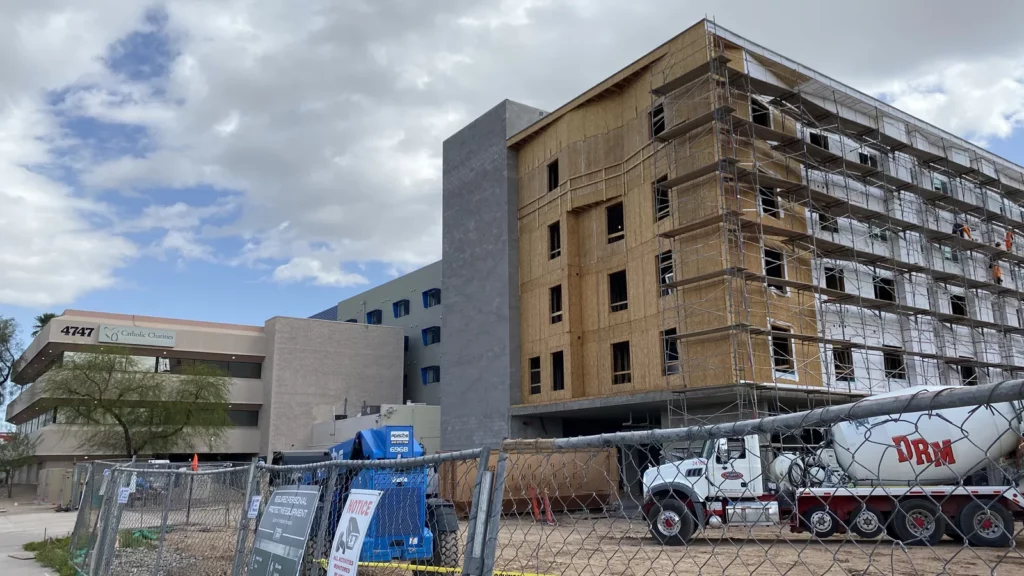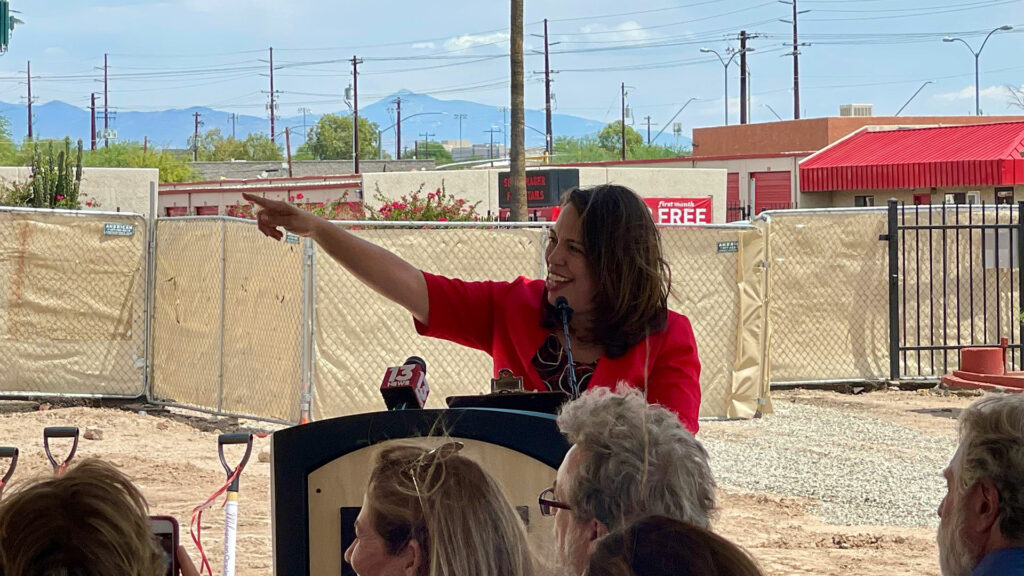Report: Arizona Housing Deficit Up 1,377% in 10 Years

Family in front of their house
By Angela Gonzales | Phoenix Business Journal
Arizona’s housing deficit has increased 1,377% since 2012 — representing 122,683 homes — according to a report by Washington, D.C.-based Up for Growth.
The report — which ranks Arizona eighth in the nation in terms of the severity of its housing deficit — calls for a need to build more homes, especially affordable homes. When Up for Growth did the study in 2012, Arizona didn’t even have a housing deficit issue, said Mike Kingsella, CEO of Up for Growth.
Nationwide, housing underproduction reached 3.8 million units in 2019, up from 1.6 million in 2012, according to the report.
Building an additional 3.8 million homes nationwide would create increased housing affordability, add $209 billion to the U.S. GOP, generate $7 billion in additional local revenue and reduce CO2 emissions to the equivalent of 7.7 billion fewer miles traveled annually at full buildout, according to the report.
In Arizona, building the missing 122,680 homes would generate 20,700 jobs over a 20-year forecast between 2023 and 2042, Kingsella said. During that same time period, Arizonans would earn an additional $26.4 billion in personal income, while the state’s gross domestic product would increase by $43.5 billion, he said.
But the housing development community in Arizona is facing several challenges, including labor, material costs and slow approval processes, said Steven Hensley, advisory manager for Zonda housing market research firm.
“In the current environment, developers are building to capacity, due to a shortage of skilled labor in the construction industry,” Hensley said. “This can be improved upon with more technological advancements, trade school recruiting and immigration.”
Hensley noted that the cost to build, including labor costs, has increased dramatically in the last few years.
“These rising costs make it difficult for developers to actually develop affordable product, which is needed the most,” Hensley said. “It is difficult to combat issues quickly, but it can sometimes be done through technology, alternative materials and looser building codes.”
Plus, he said, the approval and permitting process at the municipal level is delaying projects, which results in less development.
“Local municipalities must address these issues and allow more building and more density to improve housing costs,” Hensley said.
SOURCE: https://www.scottsdalerealtors.org/2022/07/21/report-arizona-housing-deficit-up-1377-in-10-years/






